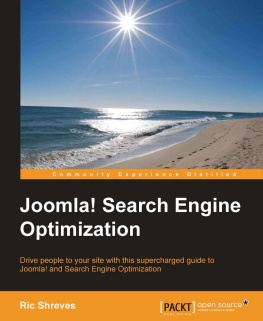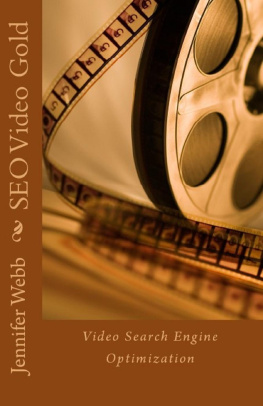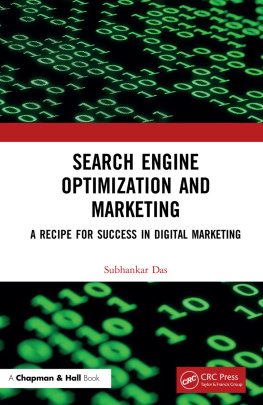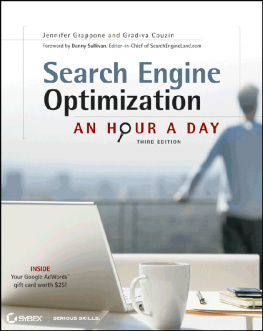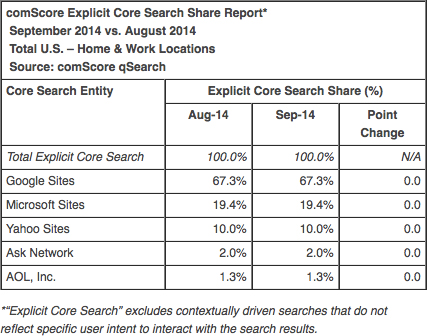In 2004, when I did my first professional work in the field of SEO, Google was estimated to receive ~200 million searches each day. In 2014, that number jumped to more than 6 billion, a 30X increase over 10 years. Since its inception, web search has been a powerful tool for people to find what they need and, as a result, its also been a powerful channel for those seeking to earn attention, traffic, actions, and customers. But in 2004, discovering how search engines worked and how to drive that traffic was a daunting challenge.
Web forums, blogs, and a handful of industry news sites were the first to take on the problem. They built communities and published resources to help both industry insiders and those aspiring to learn Search Engine Optimization. Thats where I first cut my teeth. But learning from those sources was hard work - and there were no alternatives. Schools didnt teach SEO (they still dont!), online courses were extremely rare (and many were low quality or straight-up misleading), and there were almost no books on the subject.
When I founded the SEOmoz blog (which became the company known today as Moz), my mission was to educate and to learn by doing so. Nothing has made me a better student of SEO and of marketing, than being forced to write about and to teach it to others.
Thats why it was a great honor to have been one of the contributing writers for the original two editions of this book - The Art of SEO. When we finished that first full draft, I remember skimming through it and thinking man... I wish theyd had this when I was learning SEO. That was a good feeling.
Search engines are complex. The web is massively complex. And the human beings doing the searching, sifting, clicking, and converting -- theyre the most complex of all.
But all that complexity shouldnt create an impenetrable wall for those seeking knowledge. In the past, when it has, the reputation of SEO itself has suffered. CMOs and marketing managers and small business owners have hired or contracted professionals to perform SEO and been frustrated by the process, the requirements, and the results, often because they themselves didnt know enough about the practice to make a good choice or to create the right expectations.
By pulling back the veil on SEO, those of us tasked with teaching are enabling the right expectations to be set, the right people to be hired, and the right results from SEO investments. Arguably, no one is more qualified or has done more than the team of writers, editors, and practitioners behind this new edition of The Art of SEO. In this book, youll find not only the wisdom of its authors, but the work of thousands around the world of search engine optimization whove contributed their insight directly (and are properly cited, of course) and indirectly (we thank you, too, unacknowledged teachers of us all) to transparency in a sometimes too-opaque field.
While I could not personally contribute as I would have liked to this edition, it was my honor and privilege to once again grace these pages (even if only in this paltry introduction) alongside such an excellent team. Welcome to the Art of SEO.
Sincerely,
Rand Fishkin
December 2014
Search: Reflecting Consciousness and Connecting Commerce
Search has become integrated into the fabric of our society. With more than 197.9 billion searches performed worldwide each month as of April 2014 (according to comScore, http://www.comscore.com), approximately 6.6 billion web searches are performed every day. This means that on average about 7,500 searches are performed every single second of every day. In addition, users have grown to expect that the responses to their search queries will be returned in less than one second.
If you have ever come across the various SEO is dead claims that make the rounds periodically in the online marketing world, rest assured: SEO is both alive and well - and has not, as many feared, been killed by social media marketing as a driver of web traffic. In fact, in November, 2014, Twitter (https://twitter.com/) announced that by renewing their focus on SEO, they increased the number of logged-out visitors coming to their site tenfold from 7.5 million to 75 million visitors per month: http://searchengineland.com/twitter-seo-more-visitors-208160.
The high demand for search continues to exist because people can now obtain in mere seconds information that 20 years ago would have required a trip to the library, the use of a card catalog and the Dewey Decimal System, and a foot search through halls of printed volumesa process that could easily have consumed two hours or more. Through the new channel of search, people can conduct many of their shopping, banking, and social transactions onlinesomething that has changed the way our global population lives and interacts.
This dramatic shift in behavior represents what investors like to label a disruptive eventan event that has changed something in a fundamental way. Search engines have been at the center of this disruptive event, and having a businesss website content appear prominently in the search engines when people are looking for the service, product, or resource it provides is critical to the survival of that business. As is the case with most paths to success, obtaining such prime search result real estate is not a simple matter, but it is one that this book aims to deconstruct and demystify as we examine, explain, and explore the ever-changing art of search engine optimization (SEO).
The Mission of Search Engines
Since web searchers are free to use any of the many available search engines to find what they are seeking, the burden is on the search engines to develop a relevant, fast, and fresh search experience. For the most part, search engines accomplish this by being perceived as having the most relevant results and delivering them the fastest, as users will go to the search engine they think will get them the answers they want in the least amount of time.
As a result, search engines invest a tremendous amount of time, energy, and capital in improving their relevance. This includes performing extensive studies of user responses to their search results, comparing their results against those of other search engines, conducting eye-tracking and click-through rate studies (discussed later in this chapter), and constructing PR and marketing campaigns.
Search engines generate revenue primarily through paid advertising. The great majority of this revenue comes from a pay-per-click (or cost-per-click) model, in which the advertisers pay only for users who click on their ads. Because the search engines success depends so greatly on the relevance of their search results, manipulations of search engine rankings that result in non-relevant results (generally referred to as spam) are dealt with very seriously. Each major search engine employs a team of people who focus solely on finding and eliminating spam from their search results (generally referred to as web spam teams). This matters to SEO professionals because they need to be careful that the tactics they employ will not be considered spam by the search engines, as this would carry the risk of resulting in penalties for the websites they work on.
The Market Share of Search Engines
shows the US market share for search engines in September 2014, according to comScore. As you can see, Google is the dominant search engine on the Web in the United States
Figure 1-1. Search engine market share (September 2014)
In many European countries, the disparity is even greater. However, in some markets Google is not dominant. In China, for instance, Baidu is the leading search engine. The fact remains, however, that in most world markets, a heavy focus on Google is a smart strategy for SEO.
Next page

